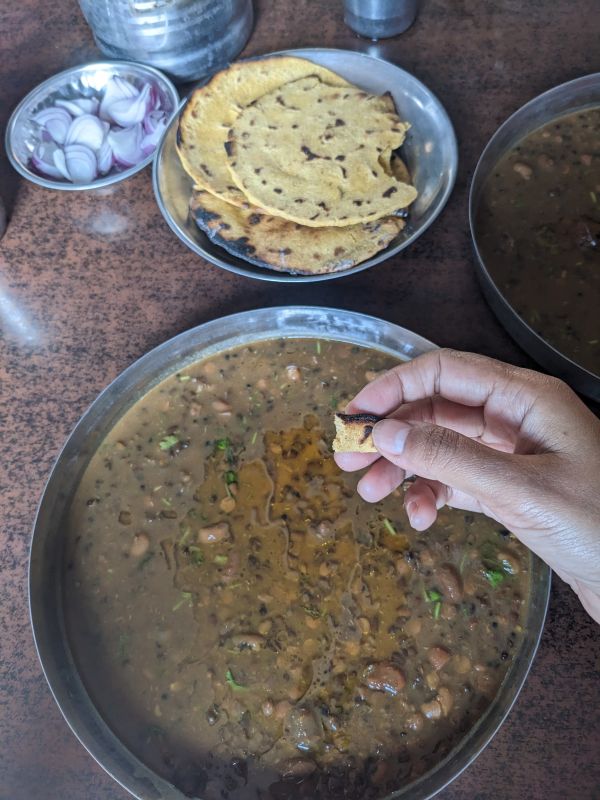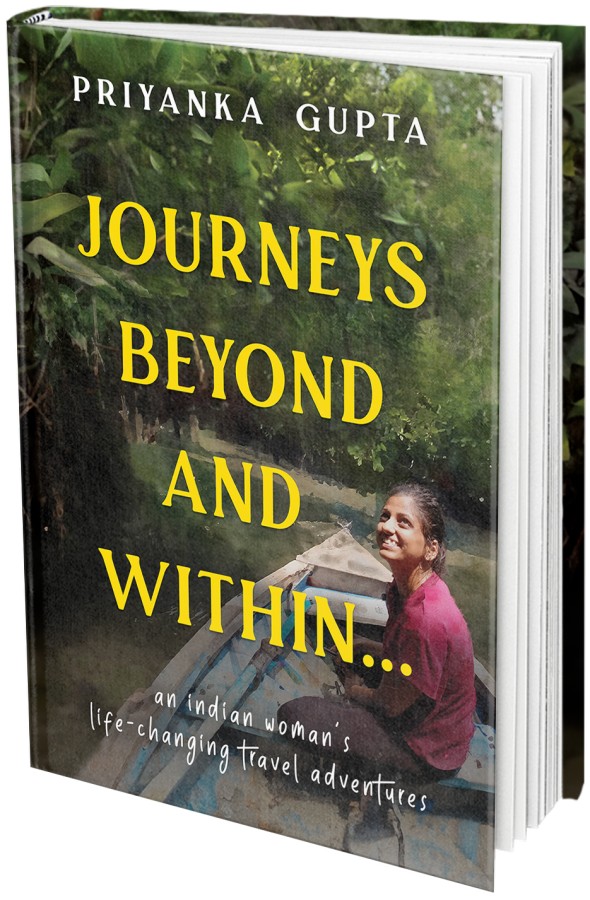Moments of Bliss on the Road
I travel full-time—haven’t had a rented or owned home to call mine since February 2021. So when a friend asks, “What are your favorite moments from your journey?” many moments of bliss rush to me.
I have hundreds of anecdotes of being frustrated, angry, afraid, or hopeless on the road. But, sitting on this chair in the afternoon in my hotel room in Mysore, typing on this Mac: a ten-year companion, with the sun streaming through the window, thousands of incidents of content and joy rush to my mind too.
On the road below, cars, scooters, and auto-rickshaws honk. The patient cow on the roadside who is trained to sit on a stone is still there, chewing cud as she always does. The sky is clear and bright.
My partner and I have had lunch. I am on my period, and so we have eaten in the room. We don’t always eat indoors. Just last evening after dinner, while walking back to our hotel in Mysore, we were discussing that now he, too, always prefers to eat out. He said he doesn’t want to make the room messy. We would need plates, bowls, and spoons too. None of the online food delivery places send cutlery even if you specifically ask them to (as if we are strangers to wooden spoons and paper plates). Then one has to open so many knots and rubber bands. If something is missing or less, we can’t ask for more. No extra portions or a piece of lemon. Food gets cold. Etc etc. Then all the bags and boxes have to be thrown. Our planet can’t take any more garbage anyhow.
I added, “Yeah, but you know it’s also a bit sad to eat in the room. I suggest going out because then we walk out, see the world, the night lights, or daylights, the sunshine, and a few people, and get what we want, be done with it, and walk back. That’s why I didn’t want to go to the restaurant attached to our hotel. That would have been like go down, eat, go back up. Sounds really dull. Now at least we get to walk a bit, see a bit.”
So, we have had lunch in the room after ages. Breakfast was outside. And if we do have dinner, we will go out again.
Amongst the grrr-grrr, vroom-vroom, and honks of vehicles, I have been working on this makeshift setup: a low table and a simple chair. I am bending down on the table, sitting straight up with my legs on the bed or on the table, and so on. I have various ongoing drafts: lost in the Himalayas of Sikkim, Serendipity in Rewalsar Lake, and Pondicherry Travel Diary. I am scrolling through my Google Photos to download the relevant pictures for these three articles.
It is one of those typical Thursdays when I want to finish all these pieces by tomorrow so when we head to Kerala on Saturday, I will have a lot of work under my belt. I would be able to relax and drive.
Now my body is tired, and I want to have some filter coffee. Though I haven’t had as much period pain as I used to have in the past: then I ate painkillers or wrapped a heat belt around me, I have been pretty tired and sleepy for the past two days. Despite the one-hour nap in the morning—which was a fitful sleep as the doorbells of nearby rooms kept ringing—I could fall asleep again. I won’t, though. There is work to be done.
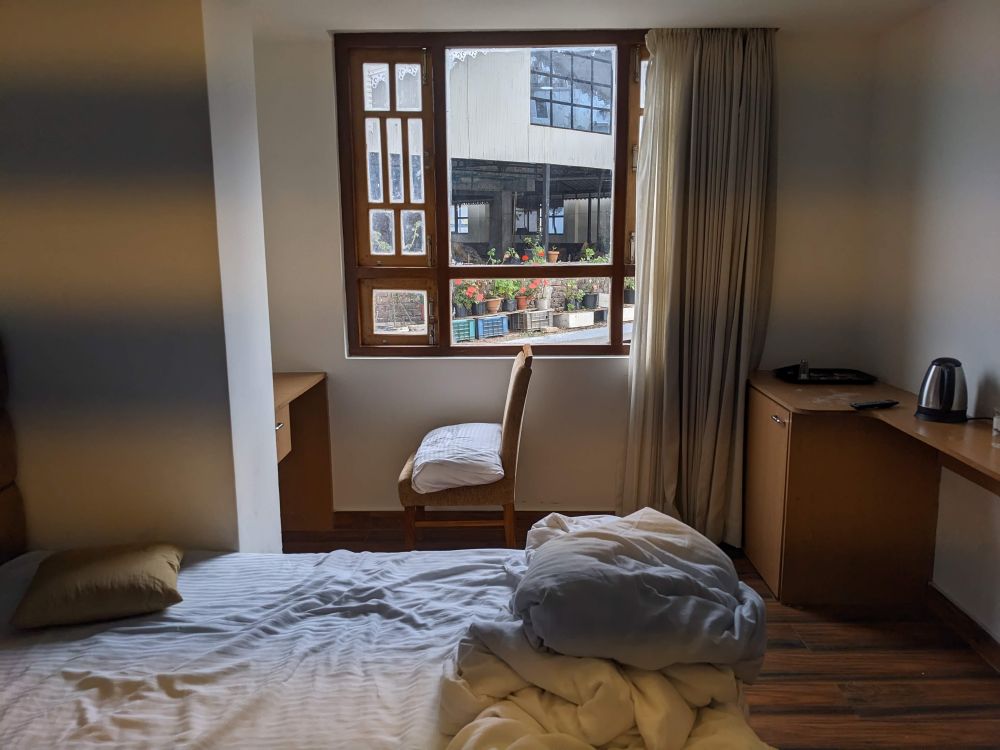
While I was scrolling through the images, the pictures of a thali I ate in Himachal last year made me pause. I had just arrived in Himachal from Sikkim, where we had lived for three months. I was working on a big writing project. Though my partner was free on weekends, I was writing round the clock without caring for Sundays or festival holidays. The one Gangtok hotel where we had stayed for almost the entire duration wasn’t working out anymore. Three months is long enough in one hotel room for two working people who have different wake-up and sleep cycles. As we didn’t know more of Sikkim, we spent three days in a home in the countryside of Eastern Himalayas, and devoid of any other options, made our way to Himachal. We wanted a stable place where I could write undisturbed.
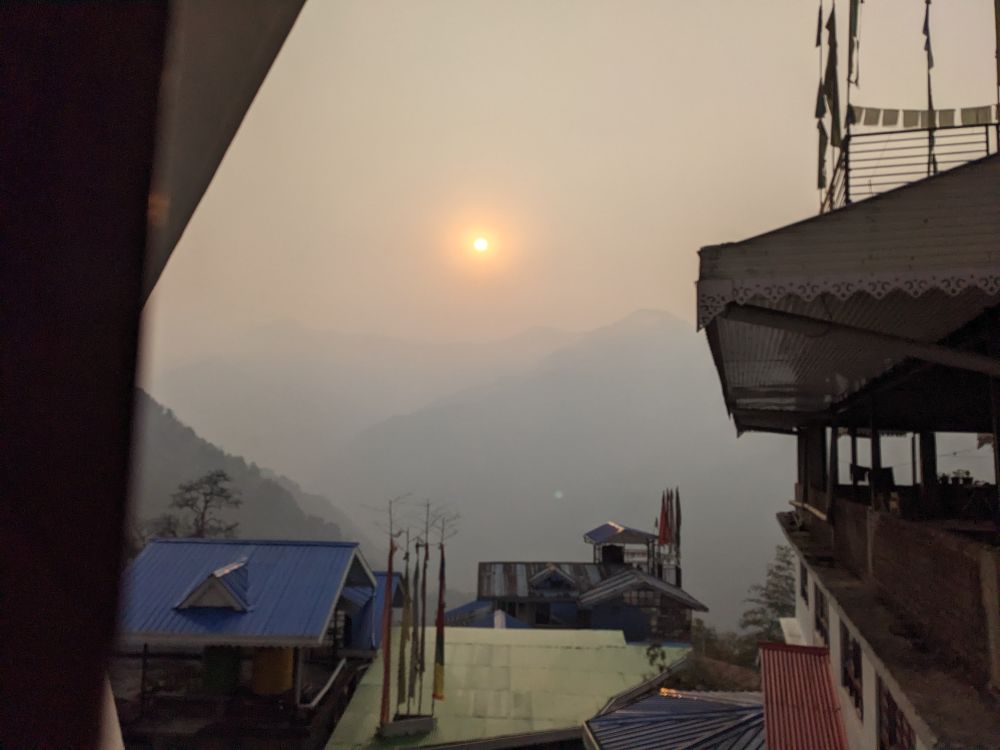
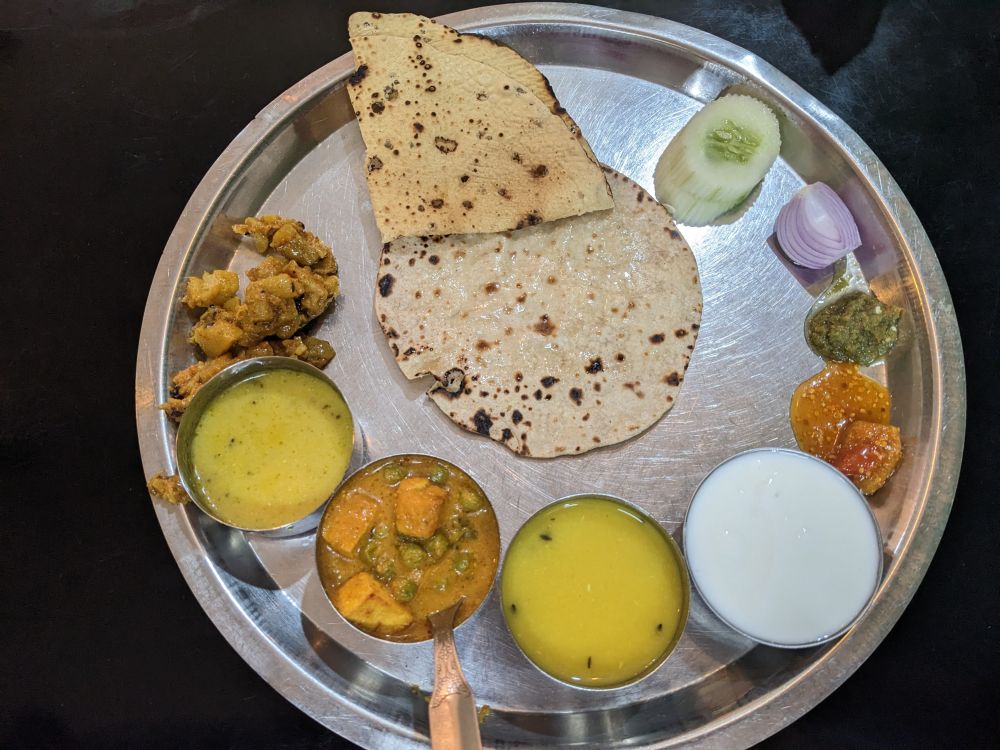
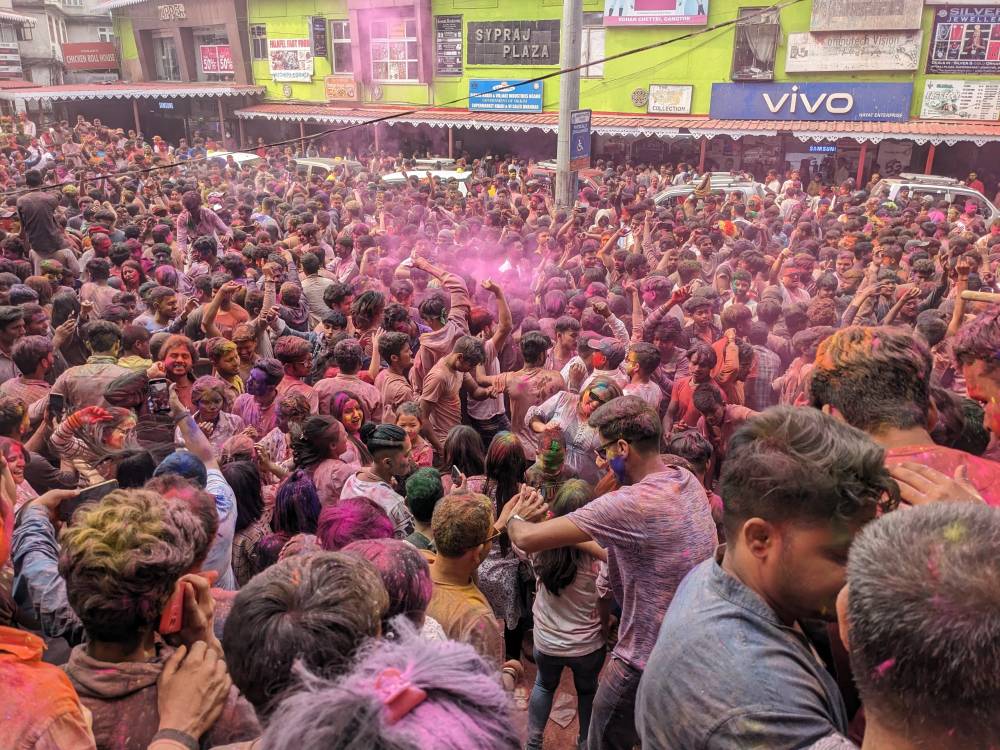
We have both traveled in Himachal Pradesh extensively in the past—alone and together—and were sure of at least one village home which could house us. So we were travelling about 2000 km from Sikkim to Himachal to be able to live peacefully and work.
That wasn’t the best time of our lives. I was head down in hundreds of pages of writing that needed more structuring, so many titles and stories were still to be written, and tens of thousands of words were waiting to be edited. No home to go to and finish the work. I hadn’t visited my parents for over a year and a half, and I still couldn’t see them. I didn’t want to break my work rhythm by spending ten or more days at home. I would have lost the complete context of the stories and would have had to restart with a new mindset. Going to my parents meant at least a two-week setback. My partner wanted to see more of Sikkim, but I couldn’t. I had to work.
So with all our eggs in one basket—that one home in a village in Himachal would work out as a writing studio for a few months—we headed to the state: everything that we own and the both of us in our car.
When you put all your hopes in one place, one idea, or one person, you do see a ray of light, but it flickers in between. What if it didn’t work out? Would the place still be functional? Would it still host us? Would I be able to focus there? That house wasn’t devoid of its own issues and compromises, and we will have to manage all of those too.
In such times, my partner and I are each other’s only friend and confidant. None of our friends or family members would know the context or even be available to help. Most friends are busy managing their lives and solving their problems.
The other friend we have is the road then.
Unexpected things happen on the road. People we could never conjure up by ourselves, show up and smile. When we think of giving up, the whole world opens up to us. When we are about to sleep hungry, a clean simple home and a delicious meal welcomes us.
The road is the friend then. We follow it along in the hope that it will bring us to the right place where we belong. It mostly does. That it will give us what is ours and what we deserve, and it does.
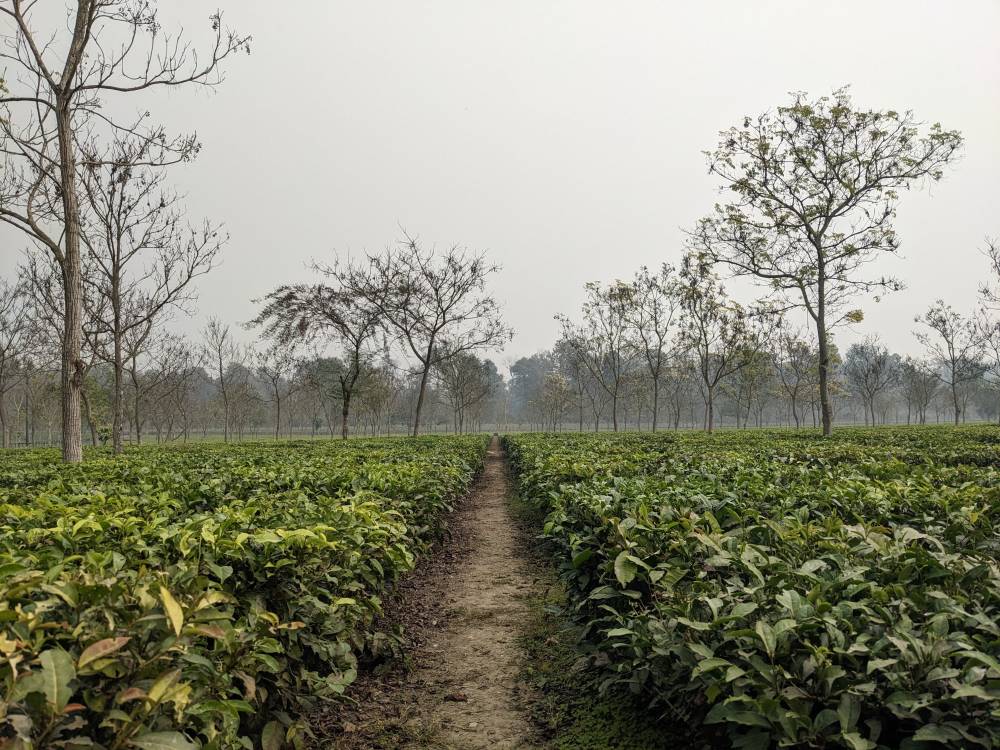
One such day was that Saturday when we were driving through Himachal, having just arrived in the state the previous night, and were planning to stay at any decent highway hotel.
We hadn’t eaten breakfast that morning. The previous night the dinner had been heavy in Chandigarh at Pal Dhaba. Now we were passing food joints, none of which my partner liked. Recognising places from our last trip in 2021, ignoring the ones that seemed too busy or expensive or touristy, finally, we arrived at a simple dhaba: a food joint where locals eat their meals. At that time, there was no one though.
From my past experience, I knew that either the dhaba must be a real deal or a pretty bad one. Real deal means simple dal and roti for a very affordable price and made for everyone the same. No bland-ening or beautifying for foreign tourists: which mostly means food I can’t appreciate. Or it could turn out to be one of those meal places with affordable prices but tasteless food. The meal is oily, salty or something else is wrong with it, and you are bound to be disappointed.
Inside the small place, two men were sitting near the clay chulha: the clay stove in which cow dung cakes and wood are used as fuel. It had big logs going in it, but many were pulled out, narrating to me that it wasn’t the busiest time of the day. Maa ki dal, and makka roti was on the menu. I couldn’t be happier. Makka roti is expensive in big cities but for the people of Himachal, who grow their own corn, makka (corn in Hindi) was once a staple. Now fewer people eat it. The locals say too much of corn flour causes stomach problems. So the corn is ground into flour for cows, and rest of the the corn cobs are sold in the market.
We got a big plate of dal each and a plate of golden and smoky makka rotis. Ash from the chulha had stuck to them but that’s how chulha rotis are eaten.
The server asked if he could pour ghee, and I gleed. Having grown up in a home with two cows, ghee in dal is as important to me as is salt. When I asked for more dal, I asked for more ghee. He poured in some more.
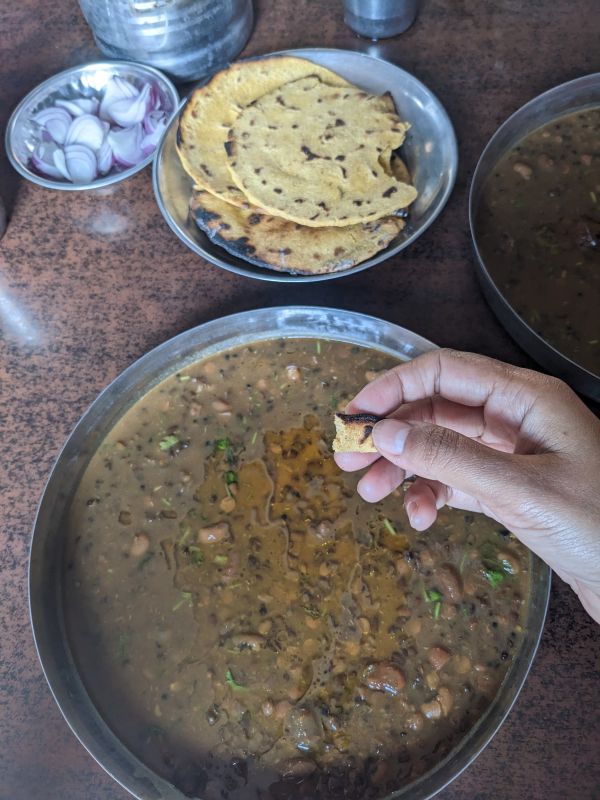
The rotis along with the daal were soft and crispy and had a smoky taste from the wood fire. The bites of the makka rotis were softer with ghee and simpler than one could make them at home. We ate more than enough, and it didn’t cost us a kidney. Just eighty rupees per thali.
Then as we were going, the men asked us where we were coming from and where we were going. Then they told us the route, precisely telling us which path to take, which might be closed, which is under construction, and so on. If not for them, we would have been lost that evening for the road ahead was confusing. Google wouldn’t have been able to figure it out.
The guy who served us also gave us a bottle of drinking water without asking. Two litres of an empty cold drink bottle was filled with the local clean drinking water and offered to us. For the way ahead, they said.
Now, when I saw the photographs of that thali, the glistening ghee floating in the dal seemed to reflect the shining smile on my face that afternoon.
Gratitude, gratitude, gratitude, is all I can say.
Sometimes, the road takes it, but it gives a lot too.
So what are some of your moments of bliss?
*****
My much-awaited travel memoir
Journeys Beyond and Within…
is here!
In my usual self-deprecating, vivid narrative style (that you love so much, ahem), I have put out my most unusual and challenging adventures. Embarrassingly honest, witty, and introspective, the book will entertain you if not also inspire you to travel, rediscover home, and leap over the boundaries.
Grab your copy now!
Ebook, paperback, and hardcase available on Amazon worldwide. Make some ice tea and get reading 🙂
*****
*****
Want similar inspiration and ideas in your inbox? Subscribe to my free weekly newsletter "Looking Inwards"!

